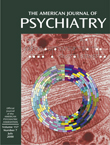We thank Dr. Cole for his comments. Our article was published as a Brief Report, so space limitations prevented us from including many of the details that Dr. Cole wants to know. Demographic and clinical characteristics of the 21 patients in the study group were as follows: 13 (61.9%) were women; 21 (100%) were white; seven (33.3%) were married, seven (33.3%) were widowed, five (23.8%) were single, and two (9.5%) were divorced; 17 (81.0%) were living at home and four (19.0%) were living in a retirement facility; and 16 (76.2%) were referred by a family physician, two (9.5%) were referred by a specialist, and three (14.3%) were self-referred. At index assessment, all patients were 60 years or older, and 11 (52.4%) were 75 years or older. Their mean Hamilton Depression Rating Scale score at index assessment was 23.7 (SD=5.1). At the follow-up described in our article (that is, after completion of 2 years of continuation or maintenance antidepressant treatment), the patients had a mean Hamilton depression score of 2.2 (SD=3.1), a mean Mini-Mental State
(1) score of 27.9 (SD=2.7), and a low level of medical burden.
With respect to the numbers of patients at each stage of treatment, 52 were treated for an index episode of depression, and 43 responded. Of the responders, nine (20.9%) had a relapse or recurrence of major depression, and 12 (27.9%) dropped out (five were noncompliant, four developed physical illness, two died, and one moved away) during the 2 years of continuation or maintenance antidepressant treatment. One other patient completed maintenance treatment but was too physically unwell to participate in the follow-up. Thus, the 21 patients reported at follow-up in our article represented 48.8% of the patients who had responded to treatment of an index episode of depression.
With respect to the assessment of outcome, a diagnosis of recurrence was made by the study psychiatrist alone on the basis of a clinical interview and the patient’s Hamilton depression score.
Finally, the cumulative probability of a person not having an episode of major depression during the 2 years of follow-up was 0.39. The 95% CI for this survival estimate was 0.17–0.62. Interpretation of this CI is, however, limited by the fact that it is based on a small number of subjects. During the follow-up, 12 patients had a recurrence of depression, three others died (from natural causes), and one moved away. Thus, only five patients were still under observation at 2 years, the time point at which this CI was calculated. The small number of subjects contributed to the wide range of the CI.

